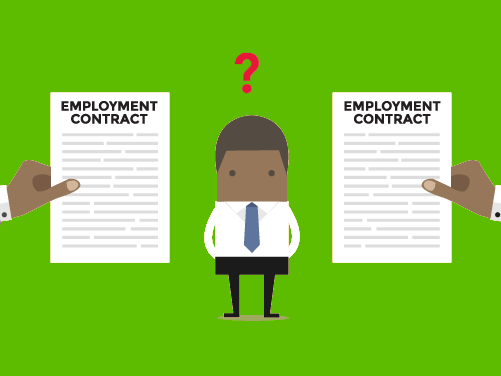After all your hard work sourcing a candidate for your client, the last thing you need is for them to accept a counteroffer at the final stage – especially in a talent shortage.
So what can you do to stop your candidate running back to their employer and accepting a counteroffer?
1. Use your initial interview to probe for answers
 The first step to overcoming a counteroffer is determining whether one is going to be a problem for you and your client. To do this you need to do some digging and find out about your candidate’s current situation.
The first step to overcoming a counteroffer is determining whether one is going to be a problem for you and your client. To do this you need to do some digging and find out about your candidate’s current situation.
During your initial conversations make it your objective to work out A) if their current employer is likely to offer them more money and B) if they’re likely to accept.
To get the answers you need, you’ve got to ask the right kind of questions. Here's a few suggestions to get your started:
- “What are your reasons for leaving your current role?”
- “How do you think your employer will take the news?”
- “Will they try and persuade you to stay?”
- “What would convince you to stay?”
- “Would you take the offer?”
Is the candidate’s current employee going to be devastated they’re leaving? Will they do anything to keep them? Spot the red flags early, and you’ll stay one step ahead of the problem.
2. Address the candidate’s motivations for leaving
While 57% of candidates accept counteroffers when they’re made, only 12% of employees leave roles because they are unhappy with their salary. So luckily, money isn’t everything.
Candidates quit for many reasons so get to know all their motivations for moving: Is their company missing the professional development opportunities they’d like? Or perhaps your candidate is fed up with being in the office full time.
Once you’ve pinpointed all their priorities, let them influence your processes: everything from the way you sell your jobs to which roles you put your candidate forward for.
The key to avoiding counteroffers is to address your candidate’s motivations for leaving and find a role that ticks the right boxes. Give them more to gain, and they’ll have fewer reasons to run back to their current employer.
3. Educate your client on the situation
 Research tells us 50% of candidates are likely to receive a counteroffer right now, but this isn’t something your clients will necessarily know. If you don’t educate them on the situation, you could end up taking the blame if a candidate accepts a counteroffer.
Research tells us 50% of candidates are likely to receive a counteroffer right now, but this isn’t something your clients will necessarily know. If you don’t educate them on the situation, you could end up taking the blame if a candidate accepts a counteroffer.
To keep your client on your side, you need to bring them up to speed on the industry-wide problem. Use industry insights and any relevant data from your CRM to demonstrate just how common counteroffers are.
Once they understand the challenges they’re likely to face, they’ll be more inclined to help you counter the problem. This could mean they offer to speed up the time to hire or even take the job to market with the most competitive salary right off the bat.
Unfortunately, for clients that have nothing more to offer candidates counteroffers will continue to be a problem. So it’s worth educating them on their place in the market and highlighting what they can do to improve their offering. It’s a tough conversation to have, but if you help them make positive changes and eliminate the problem altogether they’ll only thank you for it.
4. Have a plan of action in place
In a talent shortage, you need to do everything you can to persuade a candidate a job offer is the right one. With this in mind, you can’t afford to wait for a counteroffer to happen before working out how to deal with it – it’s essential to have a plan of action ready to go.
Not every client can counter with a bigger salary, so consider the other factors that could sway the candidate’s decision at this final stage. Play on their motivations for leaving and prepare a hard sell on the major benefits they’ll get from accepting your client’s offer.
And while candidates might think accepting a higher wage is enough to make them happy at work, statistically, they’ll be back on the market quickly. 9 out of 10 candidates who accept an offer leave their employer within 6 months – educate your candidate on the situation and they’ll be more likely to stick with the new offer in front of them.
If you want tips on how to successfully manage a candidate job offer from start to finish, download the eBook below. 
Paul Briman
Growth Specialist Paul was a Principle Consultant in the tech sector before joining Firefish. He loves changing the way agencies recruit with software.



